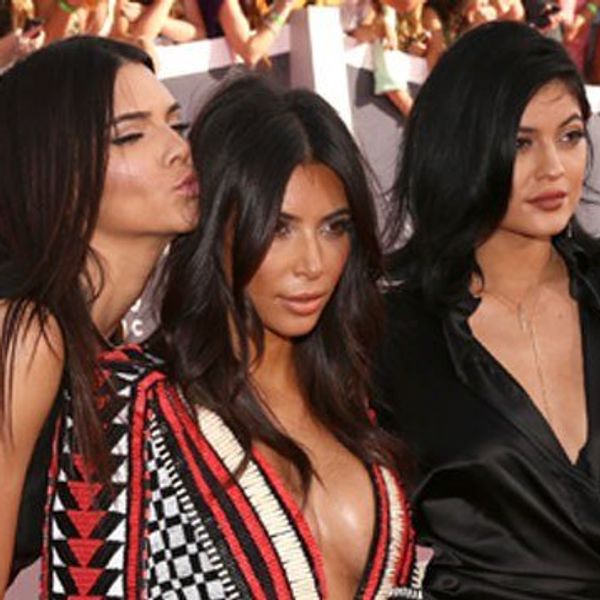You hate the media. You're a red-blooded American and there is good reason. The blending of bias and agenda mixed with actual accounts of factual occurrences prompts subjectivity and a disbelief in the idea of real truth.
But how did we get here? With a history of proud journalism in the tradition of Walter Cronkite, singular man in front of a single camera who made headlines himself for an unprecedented show of emotion: removing his glasses.
How did we go from that to the descent into the madness we know and love today? Scott Pelley has claimed that the time of trust in journalism has passed not for any fault of the big news itself, but because people are just more skeptical than they used to be.
This is not true. People are more skeptical because the news is less coherent, more emotionally charged and more dominated by partisanship and yellow journalism than it has been since the days of Pulitzer vs. Hearst. Whereas Cronkite stopped the world with the act of removing his glasses to shed a single tear at a great national tragedy, Sally Kohn is considered not doing her job properly unless she does THIS every ten seconds. Where Cronkite made the more hardline Warhawks reconsider their stances on Vietnam when he stepped out role as giver of facts to condemn the war, now every word of your “news article” should be saturated with personal opinion until the factual and the personable are inseparable. The reason has to do less with our culture or evil journalists who don’t care about truth and more to do with cold economic realities.
I recommend you buckle up because we are about to get into some math.
To start off we need to understand how ads on the internet work which is stupid complicated and almost impossible to understand. The important thing to understand is the term CPM or Cost Per Milia (if you like latin) or Cost Per Thousand (if you like English). Basically every time you open a page on a website with one banner ad you contribute to that website's bottom line. The CPM is determined by a complicated algorithm but a good brute force average is $2.80 CPM, meaning for every 1,000 page views, a website makes $2.80; so you, dear reader, by reading this very article you have paid Odyssey Online about $0.0028. Truly a tremendous economic impact.
This is also true of USA Today. Read an article online? BOOM! $0.0028 in the pocket of their investors.
But let's say you don’t do that. So, instead you go to a corner store and buy a copy of $1.50. Because you actually paid for the content of that paper you are more valuable to USA Today’s bottom line than if you just read an article online by a ration of 536:1.
But if this is true why are so many media outlets pushing for digitization and ad-based revenue away from the traditional subscription and sale of copies model?
It is because the average American has become outraged, on a near-philosophical level, at the idea that they should have to pay for information. We just don’t buy news anymore so digital ads is a business strategy that is quickly getting more and more necessary for news companies.
This is where things start to get bad, where the ugly head of postmodern journalism starts growing bulbous.
Remember that ratio 536:1? Well, that is a lot of money lost when you focus on the 1 part of that ratio. So, how does mainstream media make up for it? Pure volume. When people paid for physical newspapers, depending which one, they printed about 30-50 individual full-length stories per issue. Now, the Huffington Post, a purely online news outlet publishes “1,200 pieces of editorial content per day” and that pays off 43.4 million pageviews per day, assuming they have an average CPM of $2.80 that equates to $121,520 a day and $43,747,200 yearly, and quite frankly if that all they are making before factoring in expenses there is something wrong with their business model.
Quantity is the key to news right now. The traditional model of supply vs. demand does not work here. Good information has never been more in demand, but people have never been less willing to pay for it. How do you compensate? Greater and greater volume of information.
Now, do you think, dear reader, that maybe, just maybe, quality control may have gone down. Maybe fact checking is a bit less, maybe the 24-hour news cycle has made citing sources a little too time-consuming? And maybe a bad, bias, inaccurate, libelous, bluntly untrue, manipulative, article might slip through the cracks. And maybe instead of noticing and ignoring these subpar stories our societies “Group Think” actually aggregates this bad journalism, because it’s fun to promote a lie about people we don’t like. It feels good to put emotion before facts and context. I mean bad journalism is just good storytelling, and we like stories. Little bedtime stories make us feel good or scared depending on our mood, that fit a narrative of good guys and bad guys, that has a hero and a helpless someone tormented by an evil beast.
But that is not what news it for. It’s not for feelings; it’s for information. We just aren't willing to pay for it.




















